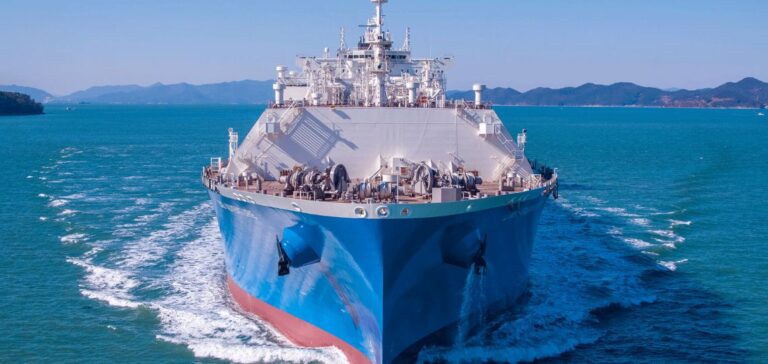TotalEnergies announced on May 19, 2025, the signing of a sales and purchase agreement for 2 million tonnes per annum (Mtpa) of liquefied natural gas (LNG) over 20 years with Ksi Lisims LNG, a development project located on the Pacific coast of Canada. The agreement is subject to a final investment decision on the project. At the same time, TotalEnergies acquired a 5% stake in Western LNG, the company responsible for developing and operating the project. This acquisition gives TotalEnergies the option to increase its stake in Western LNG or take a direct interest in the plant of up to approximately 10% once the final investment decision is made.
A strategic project on the Pacific coast
The Ksi Lisims LNG project involves the construction of a liquefaction facility with a capacity of 12 Mtpa. Located in British Columbia, the project benefits from a favourable geographic position to serve Asian markets, currently the most important globally for LNG trade. This is a key factor in TotalEnergies’ strategy to strengthen its presence in the Asia-Pacific region.
The facility will be fully powered by hydroelectricity, which would make it one of the lowest carbon dioxide (CO2)-emitting LNG projects in the world, according to project developers. Although environmental impact is not central to the commercial agreement, this technical feature could attract buyers seeking to reduce emissions in their energy supply chains.
A diversification lever for TotalEnergies
Stéphane Michel, President of the Gas, Renewables & Power division at TotalEnergies, stated that the agreement would allow the company to further diversify its portfolio in North America while meeting the needs of its Asian clients. The group is currently developing a significant portfolio of long-term supply contracts in the region.
TotalEnergies’ involvement in Western LNG also reflects its strategy of vertical integration within the LNG sector. This transaction strengthens its presence in the upstream development of projects and ensures greater control over the supply chain, from production to final delivery. No additional details have been provided regarding the exact timeline for the final investment decision on the project.






















